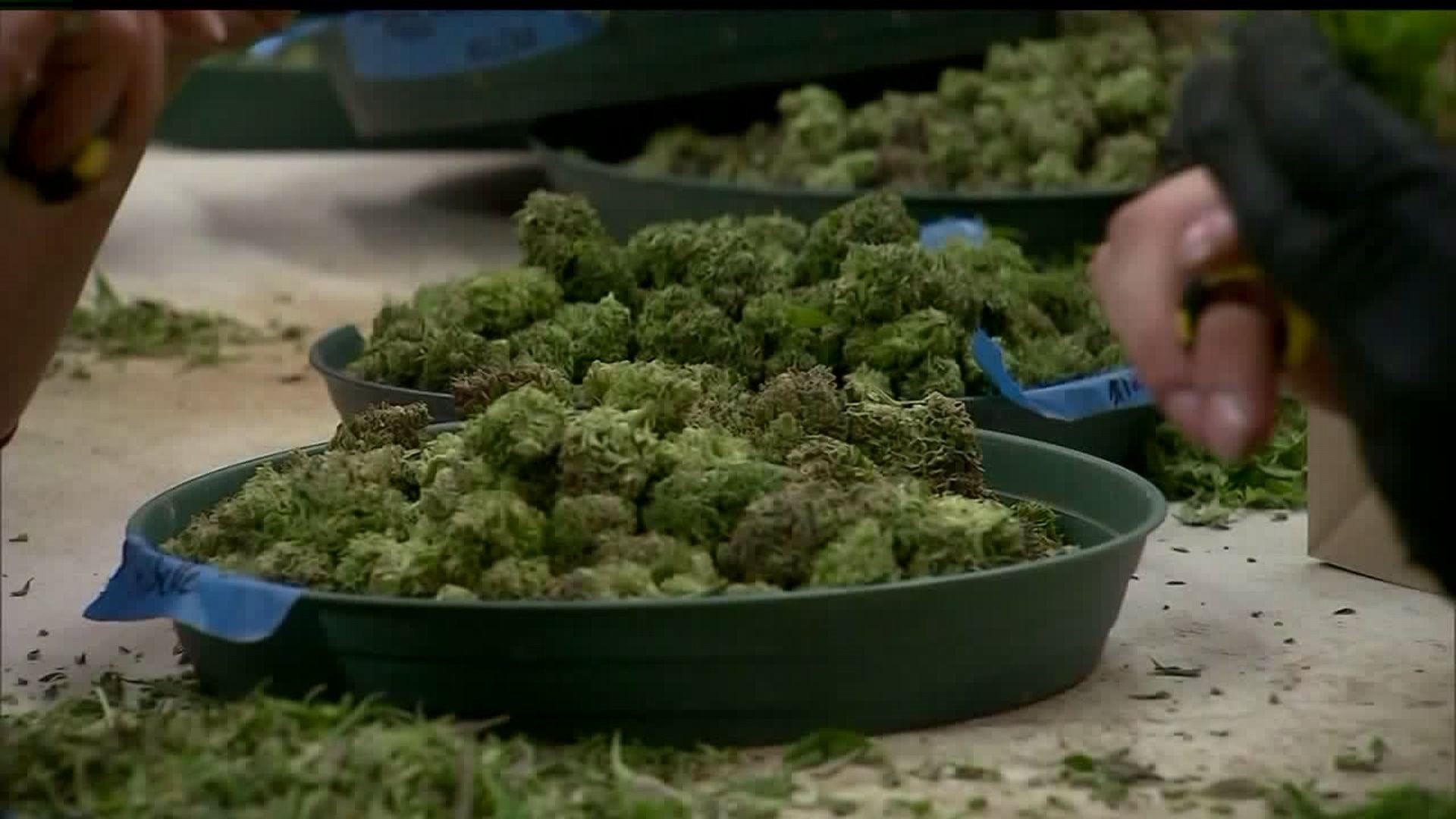DERRY TOWNSHIP, DAUPHIN COUNTY, Pa. - Researchers at Penn State College of Medicine believe they may have found a way to use compounds of cannabis to battle colon cancer. The year and a half long study shows some synthetic compounds were able to slow or stop the growth of the cancer.
It was all done in a lab, with test tubes of synthetic derivatives of marijuana and colon cancer cells.
"They may be effective in colon cancer," said Kent Vrana, Penn State College of Medicine Department of Pharmacology Chair. "It was surprising to us, the two main ingredients in marijuana itself CBD and THC were not particularly effective."
While the study found THC and CBD to not be effective in stopping colon cancer cell growth, marijuana is a complex drug. The study tested 370 different synthetic compounds, each having the possibility to do something different. Ten of them stopped cell growth of seven colorectal cancer cells. That is now what this team of researchers will take an even closer look at.
"The next steps are taking those compounds we identified, one in particular was more potent than the others," said Wesley Raup-Konsavage, research project manager. "And trying to see if we can modify it in a way to make it a treatment for colorectal cancer."
This type of research is made possible by the Medical Marijuana Act passed in 2016. The state put a focus on researching the drug and the effect it has on the approved diseases and illnesses. The researchers want to better understand how synthetic components of the drug work and how they can be used to treat cancer before calling marijuana a 'cure-all' drug.
"There are strong data to suggest there's something in marijuana that can be beneficial, we need to figure out what that is," said Vrana. "As opposed to these stories we have that suggest, 'I have an aunt or a loved one who smoked marijuana and it cured a disease.' We want to know what it is that's doing it and is it truly effective."
Researchers will continue to tweak molecules to make them more effective before testing on mice.
It is important to note, the research was done on synthetic marijuana in a lab. Penn State does not grow or process marijuana plants.

